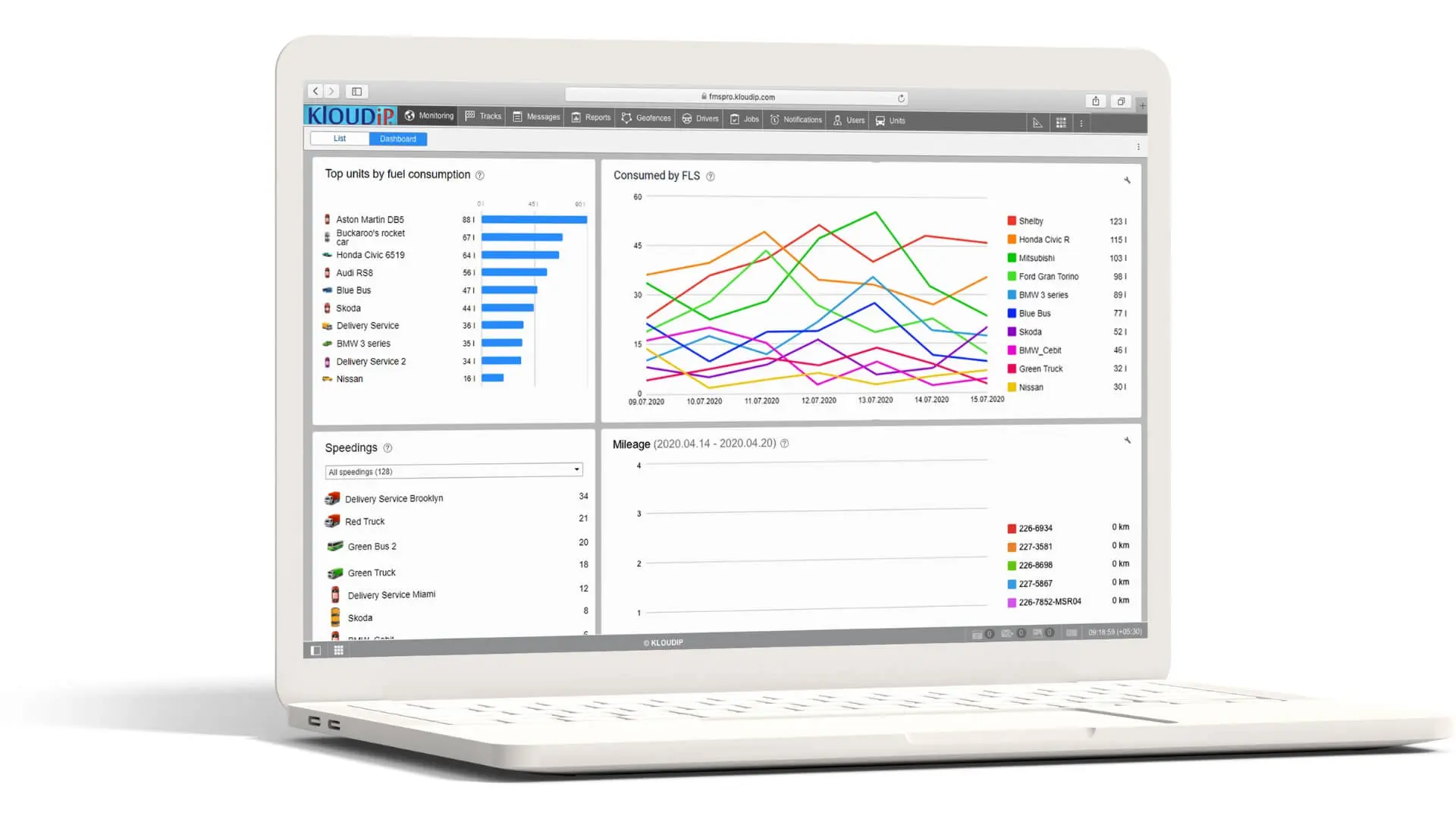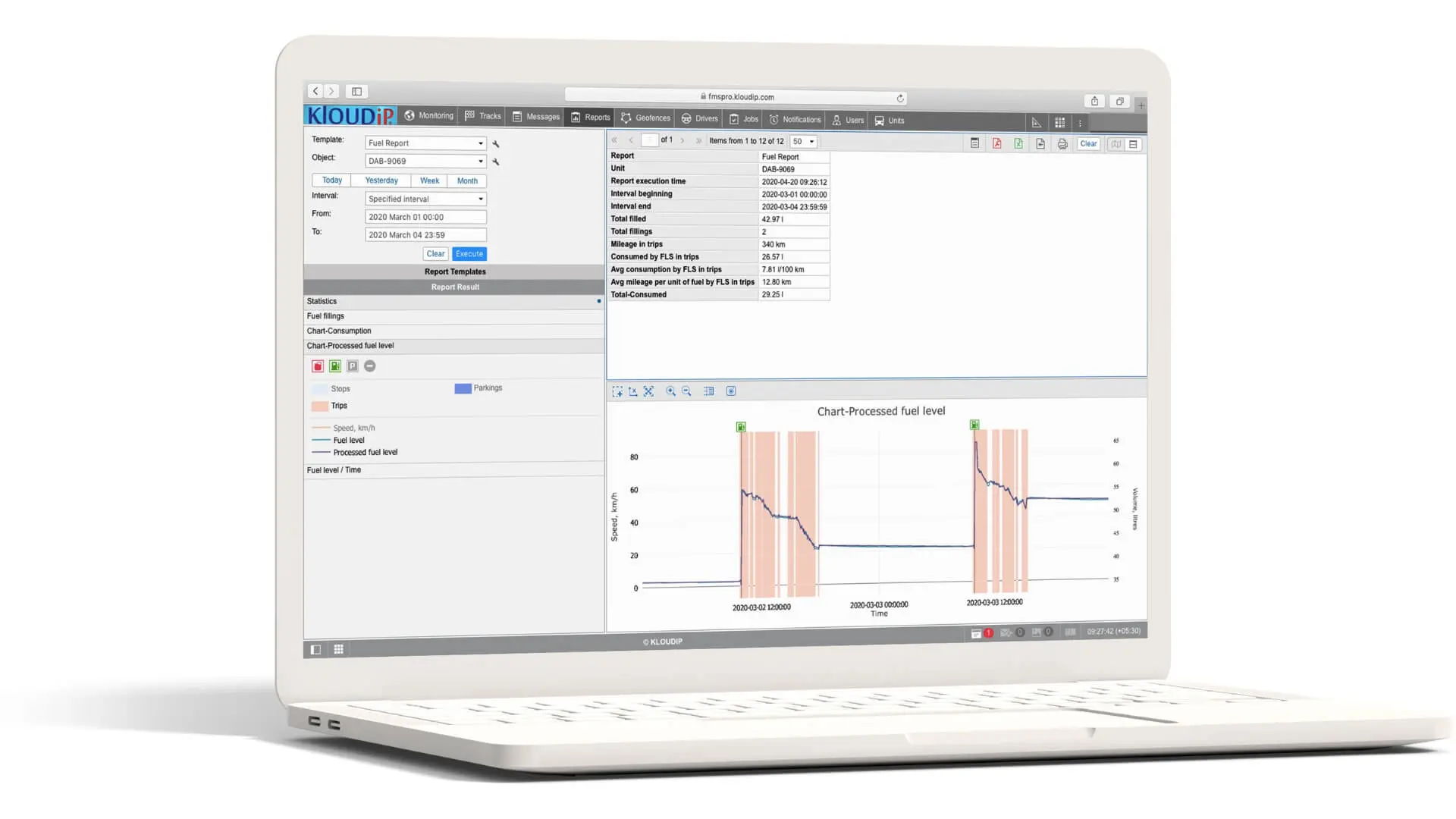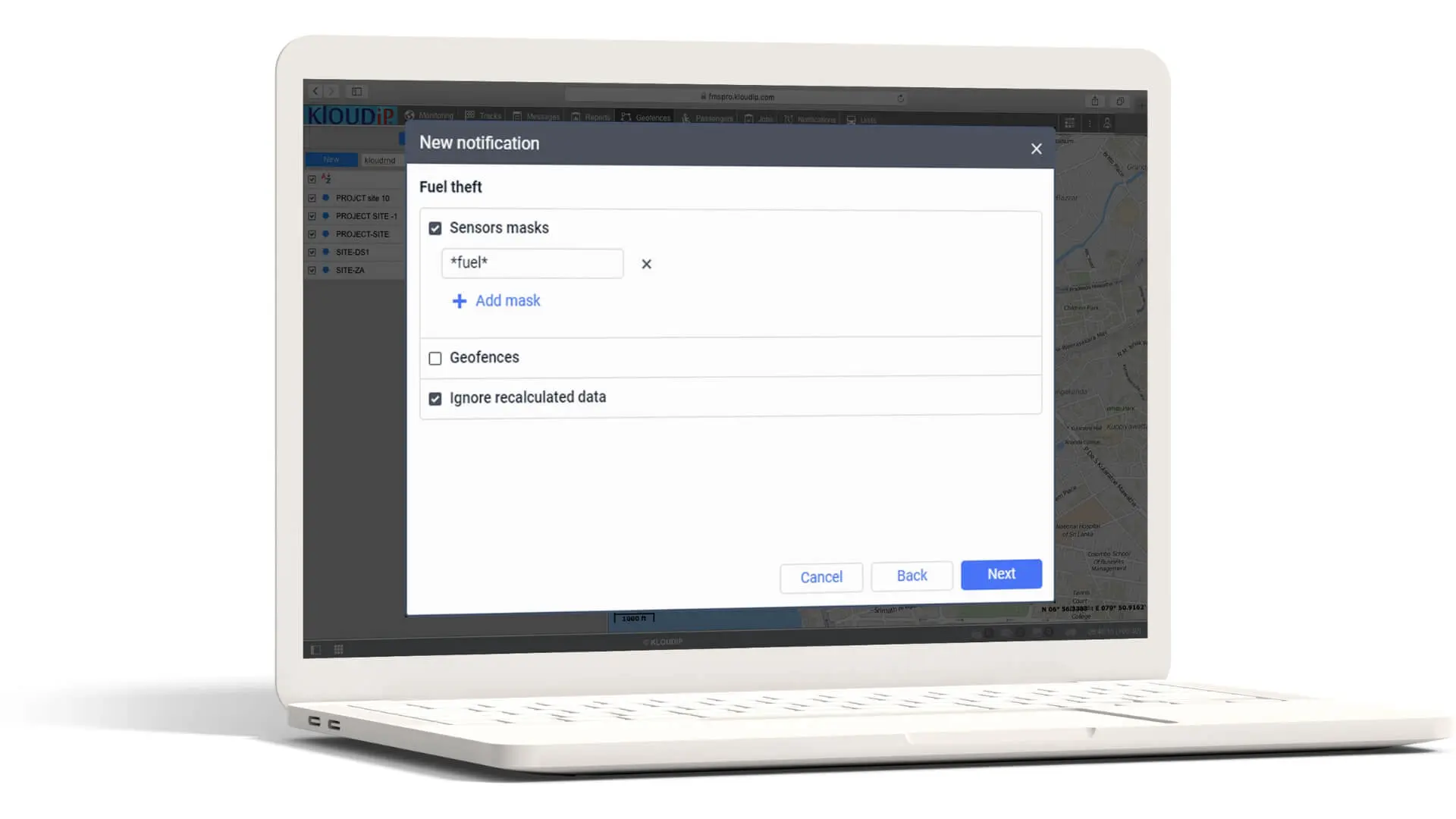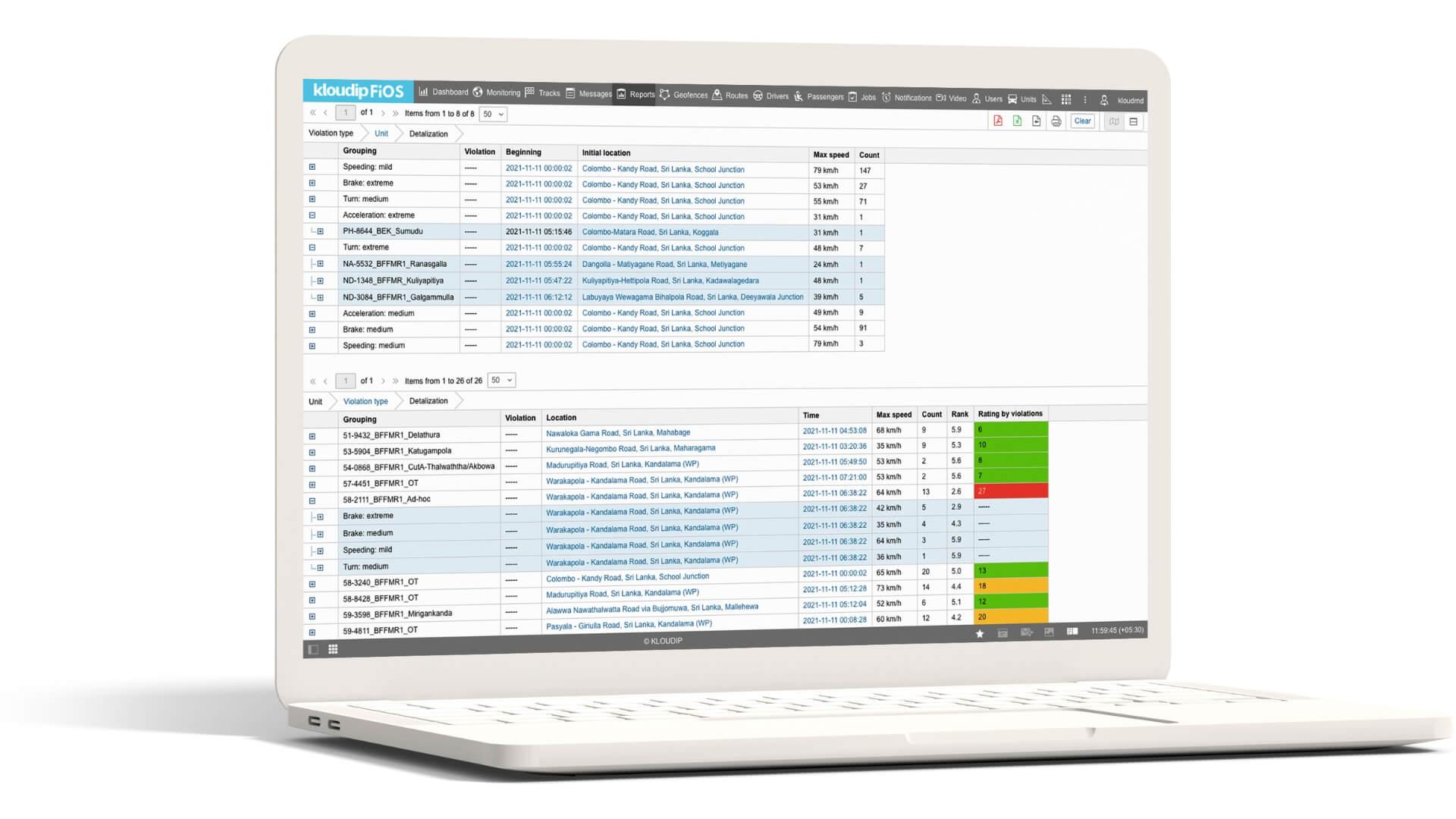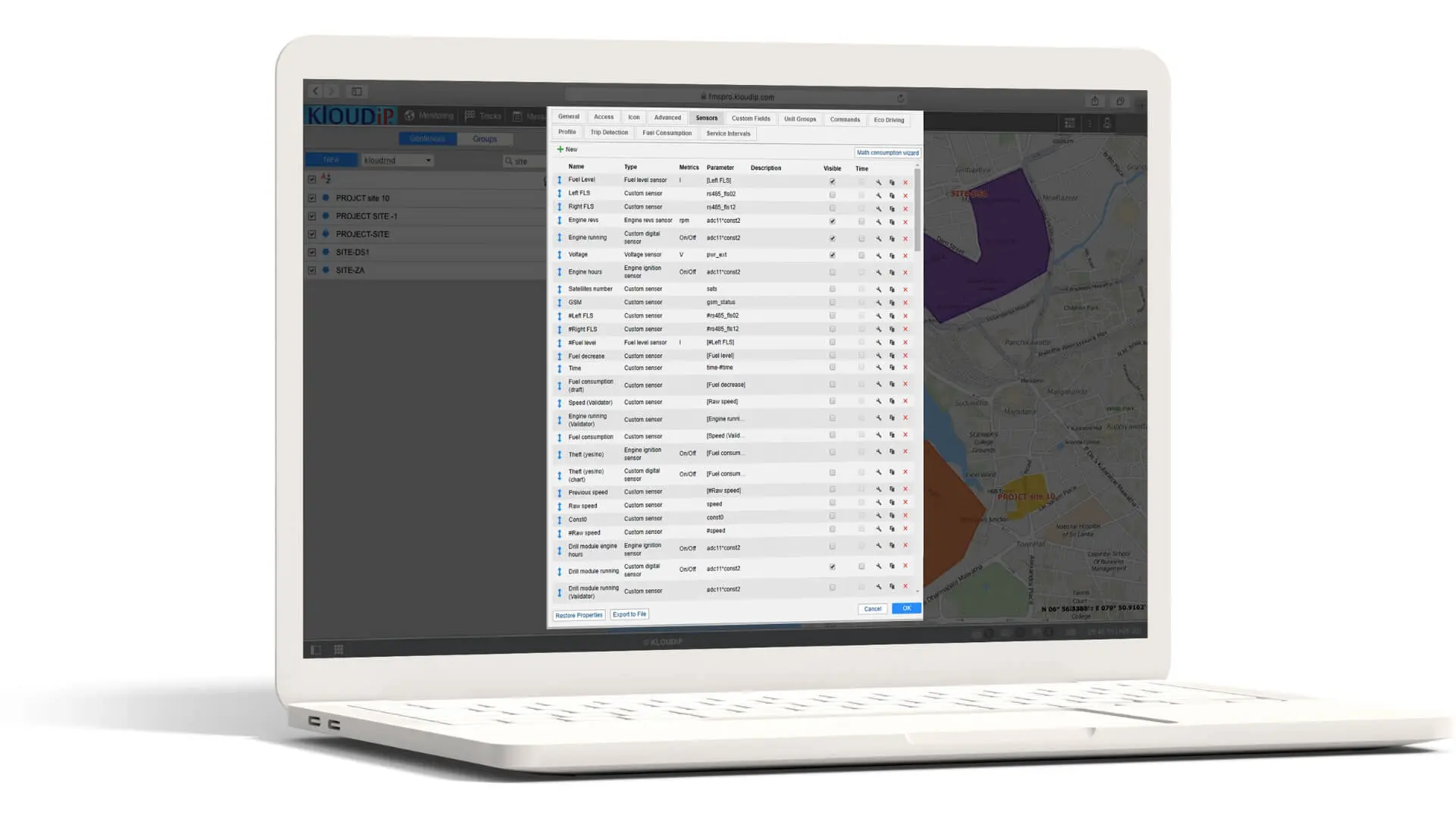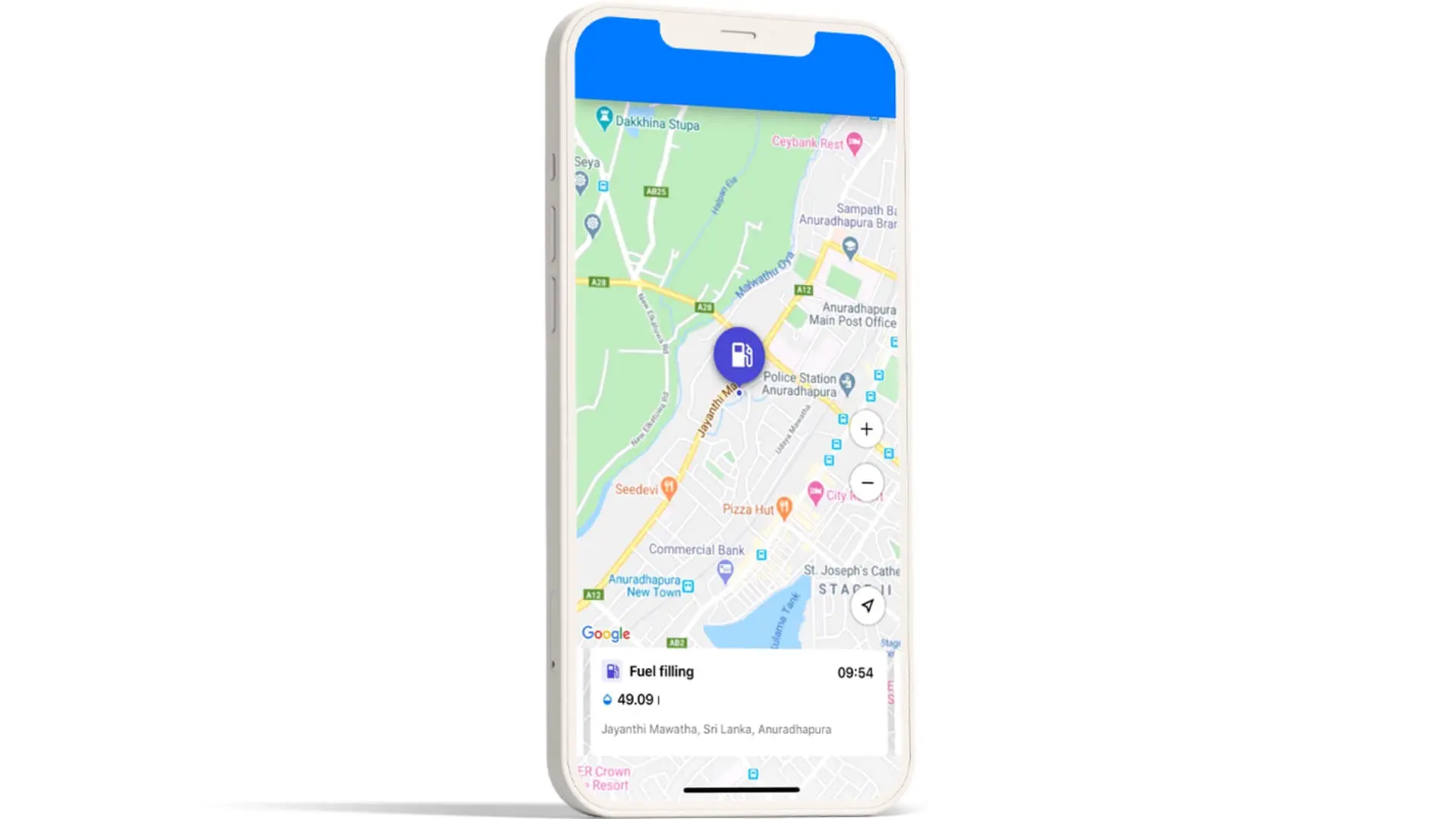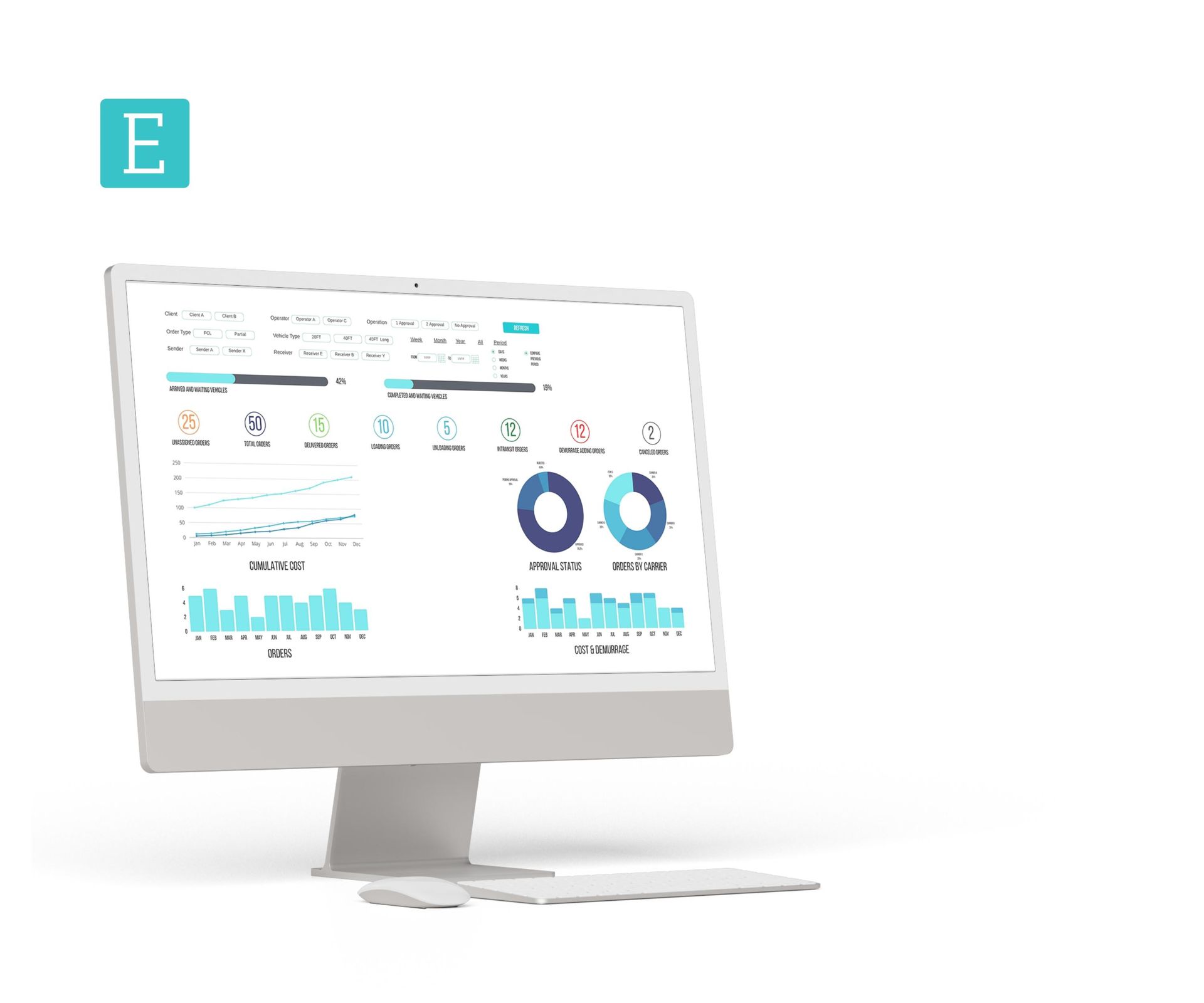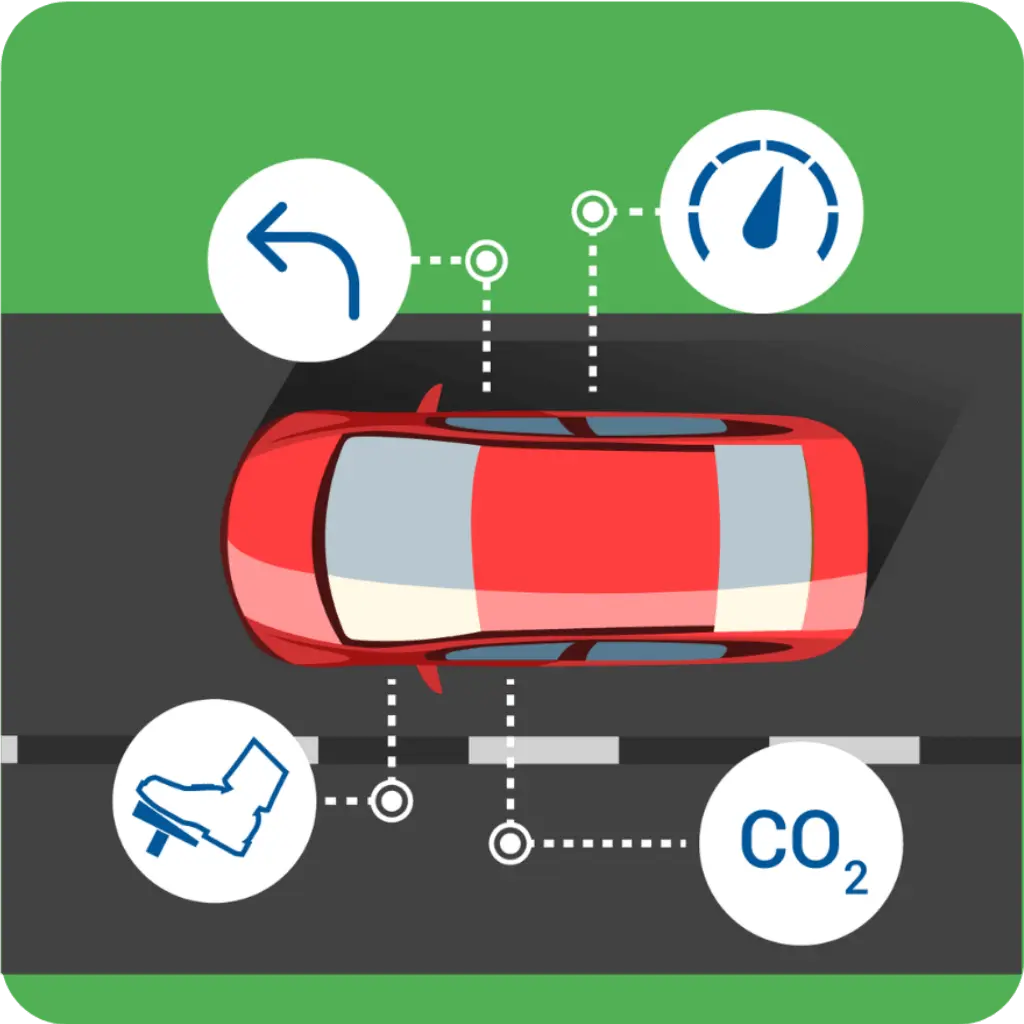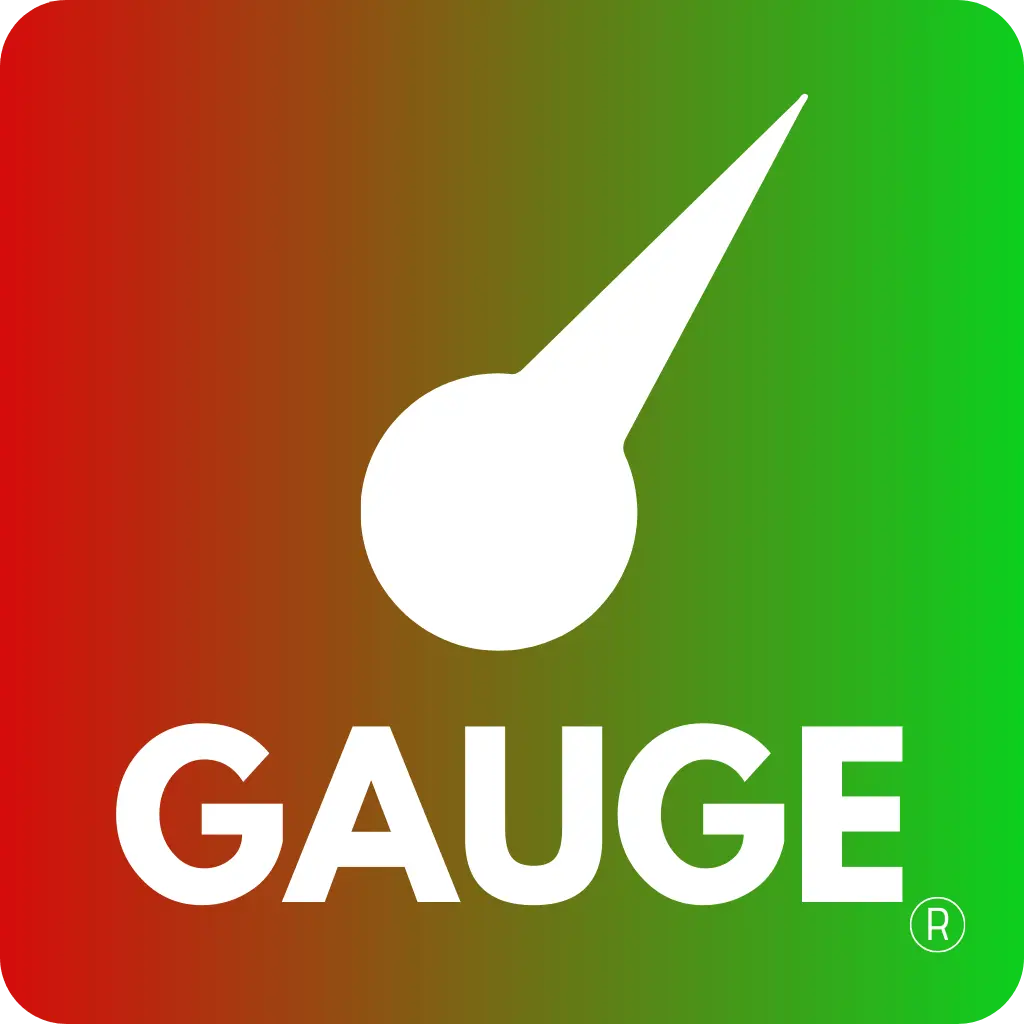Fuel monitoring system for Sri Lanka
The most advanced fuel monitoring system in Sri Lanka, designed to accurately track fuel consumption, prevent thefts, and ensure fuel economy in your fleet.
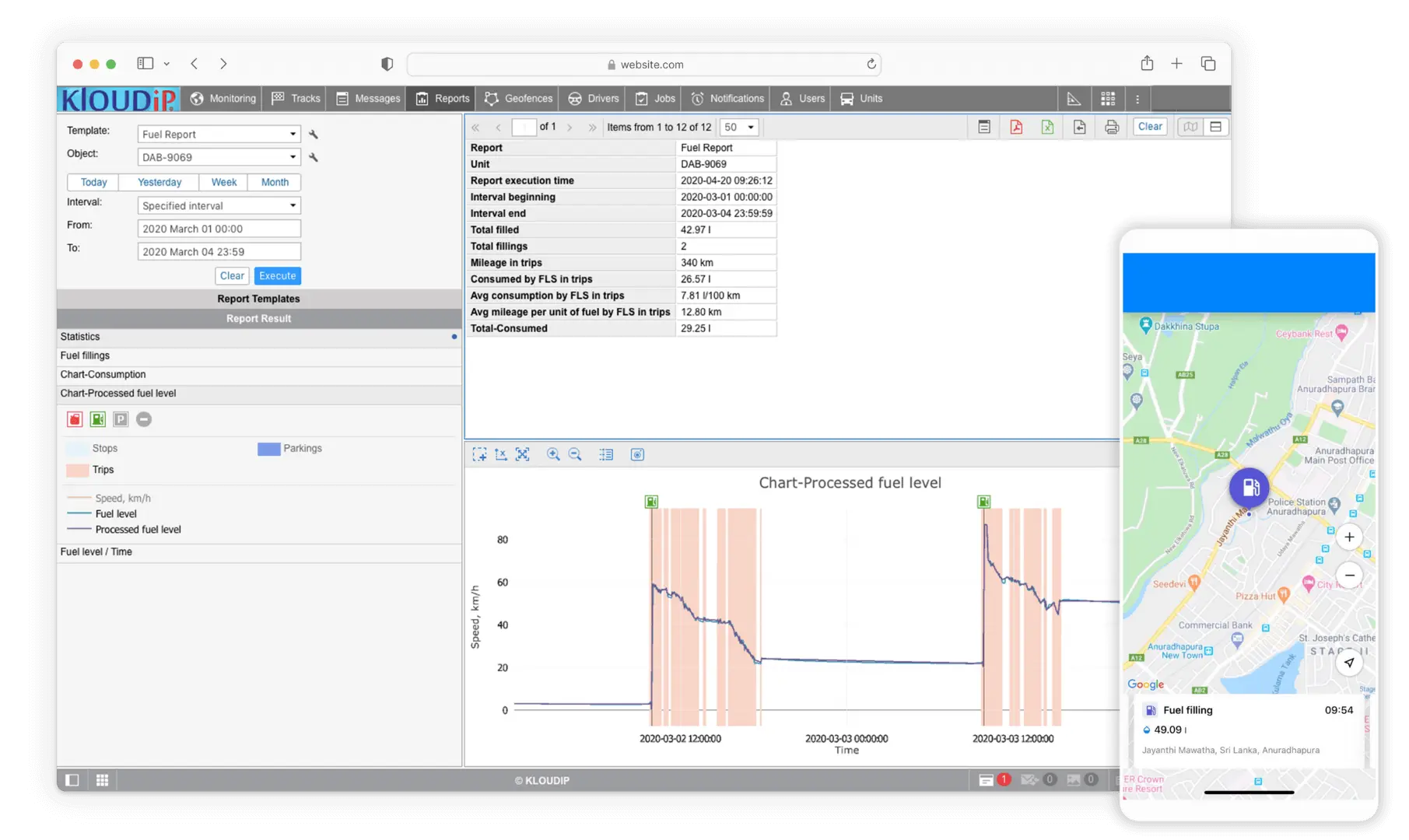
Why use FiOS fuel tracking system in Sri Lanka?
Why use FiOS fuel monitoring system?
Fuel thefts prevented
Detect fuel level drops during trips, stops, or parking and stamp out 90% of fuel thefts within the first month.
Fuel economy maximized
Pay for actual fuel consumption only, turn fuel thefts into additional income, & build a data-driven fuel efficient fleet.
Fuel reporting simplified
Generate fuel consumption or expense reports with a click, mitigate human errors, & ensure precise fuel accounting.
CO2 emissions reduced
Identify factors that contribute to excess fuel consumption and promote eco-friendly driving in your fleet.
Fuel thefts prevented
Detect fuel level drops during trips, stops, or parking and stamp out 90% of fuel thefts within the first month.
Fuel economy maximized
Pay for actual fuel consumption only, turn fuel thefts into additional income, & build a data-driven fuel efficient fleet.
Fuel reporting simplified
Generate fuel consumption or expense reports with a click, mitigate human errors, & ensure precise fuel accounting.
CO2 emissions reduced
Identify factors that contribute to excess fuel consumption and promote eco-friendly driving in your fleet.
Fuel monitoring system features
Fuel monitoring system features
Fuel efficiency solutions
Explore advanced fuel management systems for vehicles in Sri Lanka.
CIRCUMSPECTOR
Fuel efficiency solutions
Explore advanced fuel management systems for vehicles in Sri Lanka.
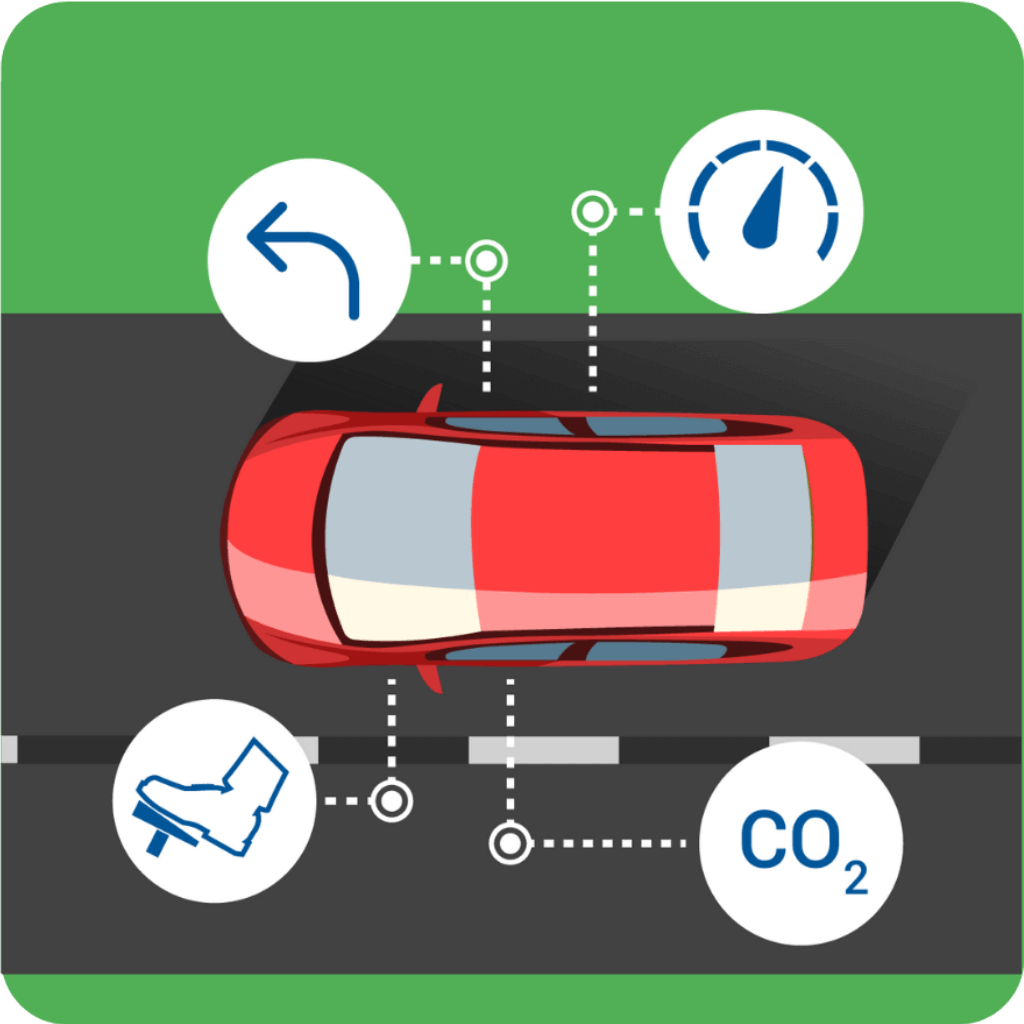 circumspector
circumspector
Enjoy 15% fuel economy by avoiding unnecessary speeding, braking, acceleration, and reckless driving.
 heed
heed
Enjoy 15% fuel economy by avoiding unnecessary speeding, braking, acceleration, and reckless driving.
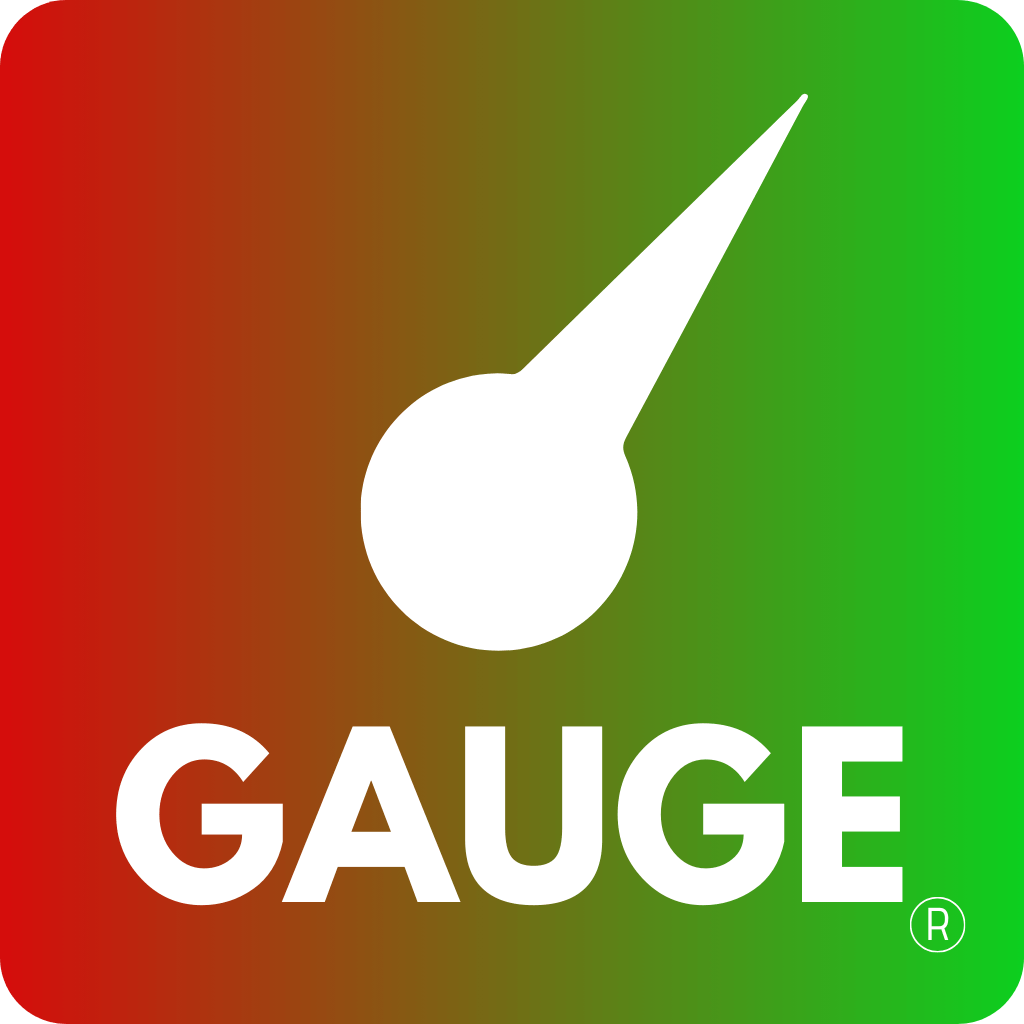 gauge
gauge
Enjoy 15% fuel economy by avoiding unnecessary speeding, braking, acceleration, and reckless driving.
fuel level and consumption monitoring devices selected for Sri Lanka
fuel level and consumption monitoring devices selected for Sri Lanka
All these sensors and meters are tried-and-tested and best-in-class for vehicle fuel tracking in Sri Lanka. Select one on your own or let us consult you – we'll advise on the most cost-efficient options for your project.

Eurosens dominator FLS

Eurosens fuel flow meter
All these sensors and meters are tried-and-tested and best-in-class for vehicle fuel tracking in Sri Lanka. Select one on your own or let us consult you – we'll advise on the most cost-efficient options for your project.
Eurosens dominator FLS
Eurosens fuel flow meter
200 meters
Data transmission range for BLE models and RS, AS, CAN for wired devices.
EU-certified
The selected fuel level sensors are E-Mark- and CE-certified.
1 %
Max measurement error and advanced thermal compensation.
360° Protection
The sensors and meters are vandal- and explosion-proof, EMI- and corrosion-resistant.
20 parameters
The fuel sensors control 20+ parameters, including fuel temperature.
Free hardware consulting
You can select any fuel level sensor, monitor, and flow meter available on the market or connect your vehicles through CAN bus and factory-installed telematics. We'll help you select the most cost-effective fuel monitoring devices for businesses in Sri Lanka.
Free hardware consulting
Our fuel monitoring system is hardware-agnostic. It means you can select any fuel level sensor, monitor, and flow meter available on the market or connect your vehicles through CAN bus and factory-installed telematics. Let us know your preferences and we'll help you select the most cost-effective fuel monitoring devices for businesses in Sri Lanka.
Enable GPS fuel monitoring in all types of vehicles or machinery in Sri Lanka
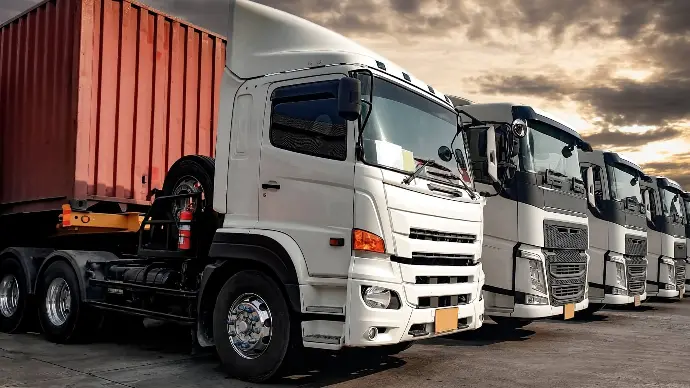
Transport fleets
Cargo transportation vehicles, including trucks, lorries, vans, reefers, road tankers, and euro trailers.
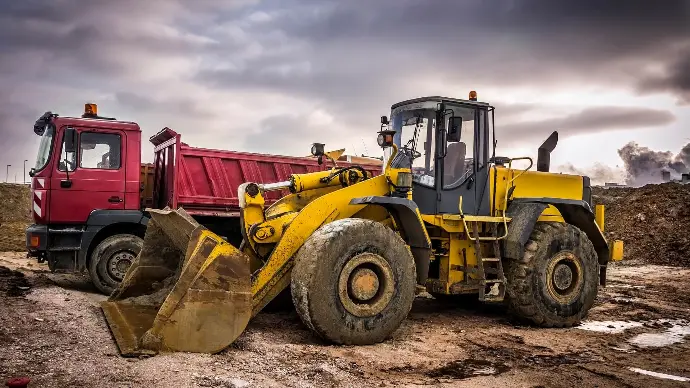
construction machinery
Heavy machinery and detachable equipment, including cranes, concrete mixers, dump trucks, and power generators.
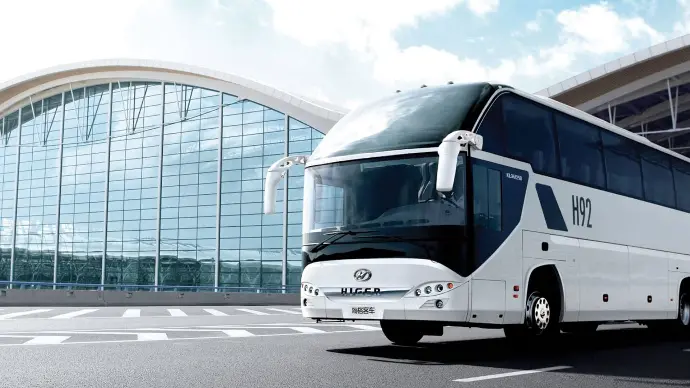
Public transport
Cargo transportation vehicles, including trucks, lorries, vans, reefers, road tankers, and euro trailers.
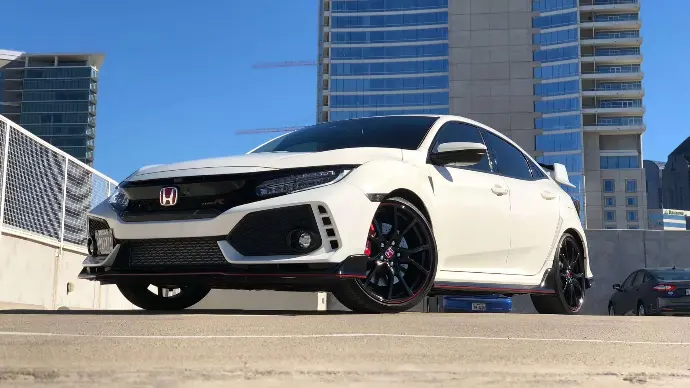
Passenger cars
Heavy machinery and detachable equipment, including cranes, concrete mixers, dump trucks, and power generators.
Enable GPS fuel monitoring in all types of vehicles or machinery in Sri Lanka
Transport fleets
Cargo transportation vehicles, including trucks, lorries, vans, reefers, road tankers, and euro trailers.
construction fleets
Heavy machinery and detachable equipment, including cranes, concrete mixers, dump trucks, and power generators.
2
Public transport
All types of passenger transport vehicles, including city transport, work shuttles, fixed-route vans, and school buses.
Private cars
Keep track of fuel consumption across your family cars for better budget planning and cost optimization.
How the fuel monitoring system works
How the fuel monitoring system works

Install a GPS tracker
GPS trackers collect data from CAN bus, fuel level sensors or counters and send it to the fuel monitoring system.

Add fuel sensors
Fuel sensors and counters measure real-time fuel level and consumption and send the data to the GPS tracker.

Set up the software
KLOUDIP activates and pre-configures the fleet fuel management system for your vehicles, including reports and alerts.

enjoy fuel saving
Detect fuel-saving opportunities, pay for actual fuel consumption only, and prevent thefts with KLOUDIP's fuel efficiency solutions.

Install a GPS tracker
GPS trackers collect data from CAN bus, fuel level sensors or counters and send it to the fuel monitoring system.

Add fuel sensors
Fuel sensors and counters measure real-time fuel level and consumption and send the data to the GPS tracker.

Set up the software
KLOUDIP activates and pre-configures the fleet fuel management system for your vehicles, including reports and alerts.

enjoy fuel saving
Detect fuel-saving opportunities, pay for actual fuel consumption only, and prevent thefts with KLOUDIP's fuel efficiency solutions.
Frequently asked questions
Frequently asked questions
What are the specific benefits of using a fuel monitoring system in Sri Lanka?
Using a GPS fuel monitoring system in Sri Lanka can bring several specific benefits, such as preventing fuel theft, maximizing fuel economy, simplifying fuel reporting, reducing CO2 emissions, preventing fuel card fraud, and enabling data-driven decisions and lower operational costs for a more efficient fleet. It also helps in maintaining accurate records of fuel consumption for regulatory compliance and tax purposes.
Are there any case studies or examples of businesses in Sri Lanka that have successfully implemented this system?
Yes, there are several examples of businesses in Sri Lanka that have successfully implemented the fuel monitoring system, resulting in significant cost savings, improved fuel efficiency, and better fleet management practices. Check out how a hospital controls fuel in lab test delivery vehicles and another KLOUDIP's client prevents fuel card frauds with our solutions.
What kind of technical support or training is provided for using the fuel monitoring system?
KLOUDIP provides comprehensive technical support and training for users in Sri Lanka, including onboarding sessions, user manuals, video tutorials, and 24/7 customer support to ensure a smooth implementation process and ongoing vehicle fuel tracking system maintenance. Upon request, KLOUDIP performs fleet fuel monitoring system configuration, hardware diagnostics, and managed fuel monitoring services.
How does a fuel monitoring system work?
A fuel monitoring system works by using sensors to measure fuel levels in vehicles or machinery and transmitting this data to a central system for monitoring and analysis. These sensors can be installed in the fuel tank or along the fuel line and can provide real-time information on fuel consumption and usage.
Can the fuel monitoring system help businesses in Sri Lanka address specific challenges related to fuel theft or inefficient fuel usage prevalent in the local context?
Yes, the fuel monitoring system can help businesses in Sri Lanka address specific challenges related to fuel theft or inefficient fuel usage. The system's real-time vehicle fuel tracking and alert features enable businesses to quickly detect and prevent fuel thefts, while its fuel efficiency analytics help identify and rectify inefficient fuel usage practices.
How does the system accommodate the unique geographical and logistical challenges present in Sri Lanka, such as varying road conditions or traffic congestion?
The GPS fuel monitoring system accommodates varying road conditions and traffic congestion in Sri Lanka by allowing companies to optimize their routes, minimize idling time, promote fuel-efficient driving, and improve overall fleet efficiency in challenging operating environments.
Are there any specific features or functionalities of the fuel monitoring system tailored to the needs of businesses operating in Sri Lanka's transportation or logistics sector?
Yes, the fuel monitoring system offers specific features and functionalities tailored to the needs of businesses operating in Sri Lanka's transportation or logistics sector. These may include customizable fuel reports, driver behavior monitoring, and stationary fuel tank monitoring. KLOUDIP's fuel monitoring module also allows companies to control the full cycle of fuel distribution, from filling stations to vehicles, for the companies who have proprietary fuel storages and dispensers.
What is a fuel sensor?
A fuel sensor is a device that detects and measures the amount of fuel in a tank or fuel line. It can be a mechanical device or an electronic sensor that sends signals to a monitoring system to indicate the fuel level.
How can you monitor fuel usage and consumption?
To monitor fuel usage, you can use a fuel monitoring system that tracks fuel levels, consumption rates, and refills. This data is then analyzed to identify patterns, trends, and potential fuel theft or misuse.
The fuel consumption tracking system is a part of the fuel monitoring system that specifically focuses on tracking and analyzing fuel consumption patterns. It helps identify areas where fuel efficiency can be improved and costs reduced.
